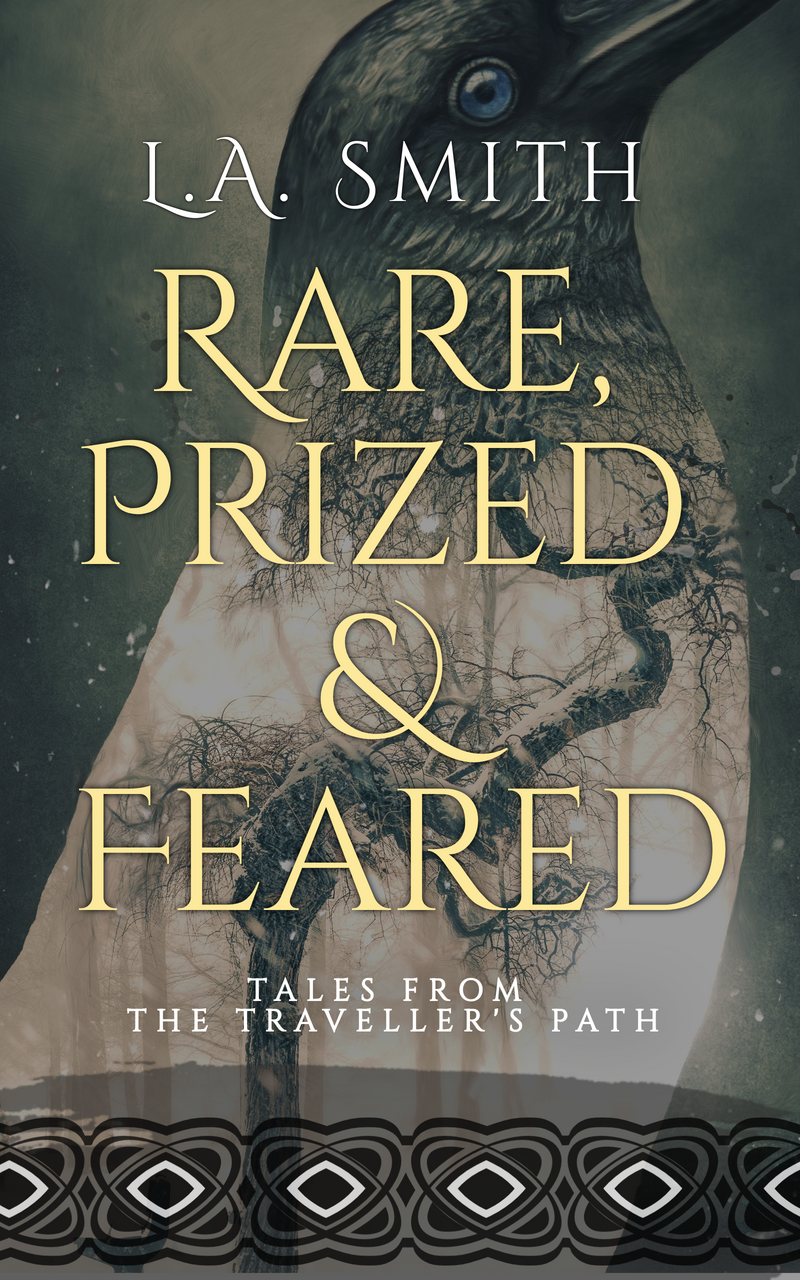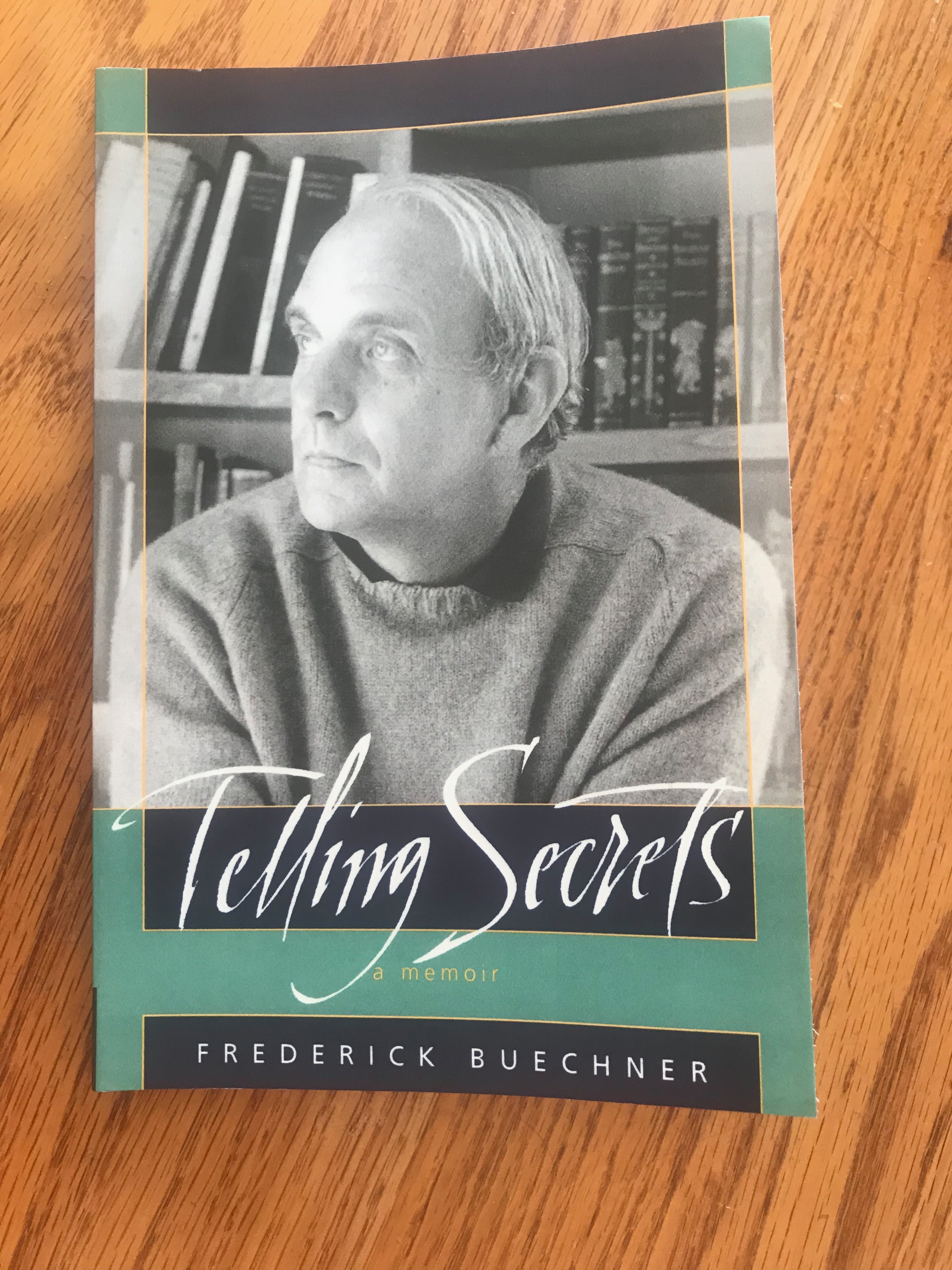
Newsletter
Yes! Send me my FREE short story collection and sign me up for those exclusive subscriber goodies!
We value your privacy, and will never spam you! View our privacy policy at lasmithwriter.com/privacy

Yes! Send me my FREE short story collection and sign me up for those exclusive subscriber goodies!
We value your privacy, and will never spam you! View our privacy policy at lasmithwriter.com/privacy
So far in my Year of Reading Buechner series I have read two of Frederick Buechner’s four memoirs: A Sacred Journey, and Now and Then. These two books cover Buchner’s early childhood, marred by the suicide of his father, and the beginning of his career as a professor and writer.
This month it was time for the next memoir, Telling Secrets. This book was written in 1991, when Buechner was 65 years old, and in it he discusses the impact of two great secrets in his life. First, the alcoholism and suicide of his father when he was very young, and secondly, the struggle his teenage daughter had with anorexia during the time that this memoir was set.

Once again, Buechner’s aim in writing this memoir was not only to tell the story of his life, but to tell it in such a way that the reader is brought to a reflection of their own. So, in this book, he begins in the introduction by saying,
It is important to tell at least from time to time the secret of who we truly and fully are–even if we tell it only to ourselves–because otherwise we run the risk of losing track of who we truly and fully are and little by little come to accept instead the highly edited version which we put forth in hope that the world will find it more acceptable than the real thing.
The book begins with Buechner discussing the impact of his father’s suicide. This has been a theme in other writings of his, but in this book he explores how his family’s unwritten rule of keeping the secret of that death had profound implications for him. Keeping that secret in a very real way not only erased the sadness and horror of that event but also in many ways erased his father himself from Buechner’s life, such that very quickly he could not even remember what his father looked like or sounded like. Interestingly enough, it was through the writing of Godric, reviewed here on the blog last month, that he began to understand an important truth, namely that,
…although death ended my father, it has never ended my relationship with my father–a secret that I had never so clearly understood before.
Godric allowed him to explore that relationship again, and to say things to his father in that fictional setting, through Godric’s relationship with his father, that he was never able to say in real life.
Another theme of this memoir is the power and role of memory in our lives. He explores how through memory we can revisit the old hurts of the past and gain healing.
It is through memory that we are able to reclaim much of our lives that we have long since written off by finding that in everything that has happened to us over the years God was offering us possibilities of new life and healing which, though we may have missed them at the time, we can still choose and be brought to life by and healed by all these years later.
So many of us have hurts and secrets that we run from and stuff deep inside. I love this idea of revisiting the past and having a chance for a do-over, for making peace with all those people and events that have scarred us.
The second secret explored in the book is that of his daughter’s anorexia; her slow starvation almost to the point of death, and his utter helplessness in the face of it. On the outside, they were a happy, prosperous family, and in many ways that label was true. But it masked the sadness, grief, and fear of this terrible illness. It forced Buechner to comes to terms with how his desire to control his children (so that no terrible thing would happen to them and cause them to leave, like his father had left) resulted in his daughter’s symbolic grasp for freedom through her illness.
It’s utterly honest and told with sensitivity and even some self-deprecating humour, which is characteristic of Buechner’s voice in these memoirs. And as always, through his writing not he only reveals his own life but takes us by the hand and encourages us to ponder our own. What secrets are we carrying around with us? How are those secrets crippling us? Can we face them, and tell them, and so be freed from their powerful hold over us?

The Little Ease was a tiny room in the Tower of London where prisoners could neither stand up fully nor lie down properly. Buechner uses this as a metaphor for how he spent so much time, spiritually and psychologically speaking, bound up in dark, cramped, airless rooms of his own making. He contrasts this with the Chapel of Saint John, right above the Little Ease, a place of serene silence, peace, and holiness. Telling Secrets describes his journey from the one to the other during the course of years detailed in the book.
Telling Secrets also covers some of Buechner’s professional life as well. During these years he taught a couple of courses at Harvard University’s Divinity School, which he describes as a difficult time, given that many of the students didn’t even believe in God. He contrasts this with a joyful time teaching a course at Wheaton College in 1985, which is Billy Graham’s old alma matter, and where he found the practical and open faith seen in the students’ lives refreshing and encouraging.
Around this time, in 1987, Buechner wrote and published Brendan, to great acclaim. And around that time as well, he discovers the power of attending an Adult Children of Alcoholics Anonymous -type group, which, along with some innovative therapy, brought much healing to the wounds of his past.
This book is another wise and gentle memoir, which I thoroughly enjoyed. It gives you much to ponder long after you read the final sentence. The two memoirs I have read so far are ones that I will definitely re-read, and this one will be the same.